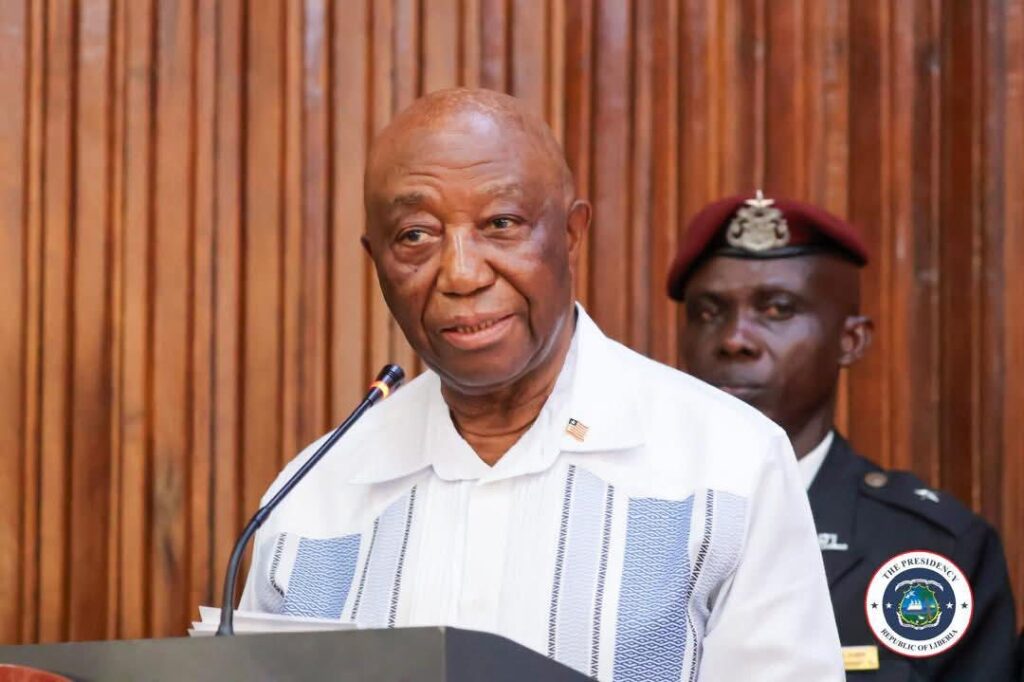In the wake of tomorrow’s national rally against drugs, President Joseph Boakai has unveiled a sweeping action plan to address Liberia’s escalating drug crisis.
The move comes as the country grapples with its growing reputation as a transit point for illicit substances, leading to an alarming proliferation of harmful drugs within its borders.
Speaking through a Special Presidential Statement, the Liberian leader described the drug epidemic as “an attack on our future” and vowed to protect Liberia’s youth, communities, and generations to come from the scourge of substance abuse. “We cannot allow the spread of illicit drugs to turn our children into victims, our communities into ghettos, and our neighbourhoods into shelters for criminal elements,” he declared.
The announcement followed the submission of a progress report from the Multisectoral Steering Committee on Drugs and Substance Abuse.
President Boakai praised the Liberia Drug Enforcement Agency (LDEA) for its efforts, while commending civil society groups, community organizations, and activists for their advocacy and awareness campaigns.
He called for a united national front to complement government measures with concrete, actionable steps.
The newly introduced National Anti-Drug Action Plan outlines aggressive measures to be enforced immediately under the law.
These include the seizure of properties linked to drug activities, with landlords and accomplices facing prosecution; strict performance mandates for LDEA regional commanders with a six-month results deadline; and the establishment of a national whistleblower program offering cash rewards and protection for informants. Drug cases will be fast-tracked in the courts with mandatory sentencing, while rehabilitation centers will be expanded alongside reintegration programs for recovering users.
The plan also commits to significant investment in border surveillance, security equipment, scanners, and canine units. Schools will see the introduction of anti-drug curricula and random drug testing in high-risk areas.
The national drug emergency framework will be reinforced to allow raids and lockdowns where necessary, while assets belonging to suspected traffickers will be frozen in collaboration with financial institutions.
Budgetary allocations toward drug enforcement, education, and legal reforms will be significantly increased.
President Boakai stressed that the fight will be “non-selective and relentless,” warning that “no status, no title, no uniform, and no connection will protect anyone involved in drugs.” Despite fiscal constraints, he has directed Liberia’s financial authorities to prioritize funding for school-based anti-drug programs, the operational capacity and equipment of the LDEA, rehabilitation infrastructure and staffing, advanced border and port security technologies, nationwide prevention campaigns, and legal and judicial reinforcements.
“Liberia will fund its own fight first,” the President affirmed, while appealing to donors and international partners to support the renewed national effort. Concluding his address, he urged all Liberians from parents and educators to leaders and citizens to join the battle. “Together, we will not just fight, we will win. Liberia will not lose another generation to drugs not on my watch,” President Boakai declared.


